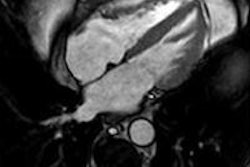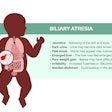Women older than age 55 who are diagnosed with low-risk, localized early-stage breast cancer may be able to forego radiotherapy following breast conservation surgery, according to an Italian study presented at the recent American Society of Breast Surgeons' annual meeting in Chicago.
This could have profound implications for women who elect to have mastectomies instead of breast conservation surgery when access to radiotherapy is unavailable, according to presenter Dr. Corrado Tinterri, the clinical director of the Humanitas Cancer Center at Istituto Clinico Humanitas in Milan.
Tinterri reported the outcomes of 749 women who received breast cancer treatment between January 2001 and December 2005 at one of 11 cancer treatment centers in Italy. These findings from the randomized prospective clinical trial found that the outcomes of patients with respect to both local and distant cancer recurrence were comparable, whether or not they had received radiotherapy.
Resolving controversy
The clinical trial was undertaken to help resolve the controversy as to whether radiotherapy is needed for women between ages 55 and 75 who are diagnosed with low-risk breast cancer.
"Radiotherapy following breast cancer surgery is indicated for women under the age of 55, and can be avoided for women over the age of 75 years," Tinterri said in a press conference. "However, for the 55- to 75-year-old, the question remains as to whether postoperative whole-breast irradiation is needed, or represents overtreatment."
Women in the 55 to 75 age group recruited to participate in the clinical trial were randomly assigned to have or forego radiotherapy following breast conservation surgery. The objective of this long-term trial was to compare the cumulative incidence of local recurrence and also compare distant recurrence. The researchers hope to define a reliable risk-factor profile of low-risk, older women for whom radiotherapy could be avoided.
Patients enrolled in the trial had a tumor 2.5 cm or smaller that was a unifocal infiltrating carcinoma of any grade or receptor status. Nodal involvement could not exceed three nodes. The patients did not have any extensive intraductal component or extensive peritumoral vascular invasion. None of the patients had any prior history of cancer, with the exception of basal cell carcinoma skin cancer or in situ carcinoma of the cervix.
The patients were fairly well-balanced between the treatment groups with respect to tumor characteristics. The 373 patients who received radiotherapy had a conventional course of whole-breast irradiation with a radiation dose of 50 Gy plus a 10-Gy boost.
At a median follow-up of nine years, seven patients from each group experienced a local relapse, and 26 radiotherapy-treated patients and 28 surgery-only patients had a distant relapse. Six patients who received radiotherapy and five patients from the surgery-only group developed a contralateral tumor. The differences were not statistically significant.
A total of 104 patients died during the observation time. In the surgery-only group, 29 (7.7%) patients died from breast cancer; 26 (7.0%) patients in the surgery-plus-radiotherapy group died from breast cancer. Four deaths (1.1%) in the surgery-only group were attributed to other cancers compared with eight deaths (2.1%) in the radiotherapy group. Distant disease-free survival was 96.5% and 96%, respectively.
"The interim analysis failed to reveal a statistically significant difference in the risk of local recurrence and death in the two treatment groups," Tinterri said. "While longer follow-up is needed, data at nine years [are] very promising. I think it is very important, especially at this moment of economic crisis, that radiotherapy could be omitted without worry for a selected type of breast cancer patient."
The findings mean that in Italy -- and probably in other countries as well -- oncologists would recommend broader use of breast conservation treatment, he continued.
"This could reduce the expense of performing a mastectomy just because a patient may not have access to radiotherapy treatment," Tinterri said. "Breast conservation surgery gives the patient a much better cosmetic outcome and a better quality of life."
Radiotherapy centers would be able to treat more patients for whom irradiation is a necessity. Waiting lists of patients to be treated could be reduced. The cost of cancer treatment for breast cancer patients in Italy would be reduced somewhat, both by eliminating the cost of radiotherapy and the cost of treating side effects.
"For this selected patient population, longer follow-up is needed to consolidate these results, but we are very hopeful that the outcomes for the patients will continue to be comparable," Tinterri said.



















